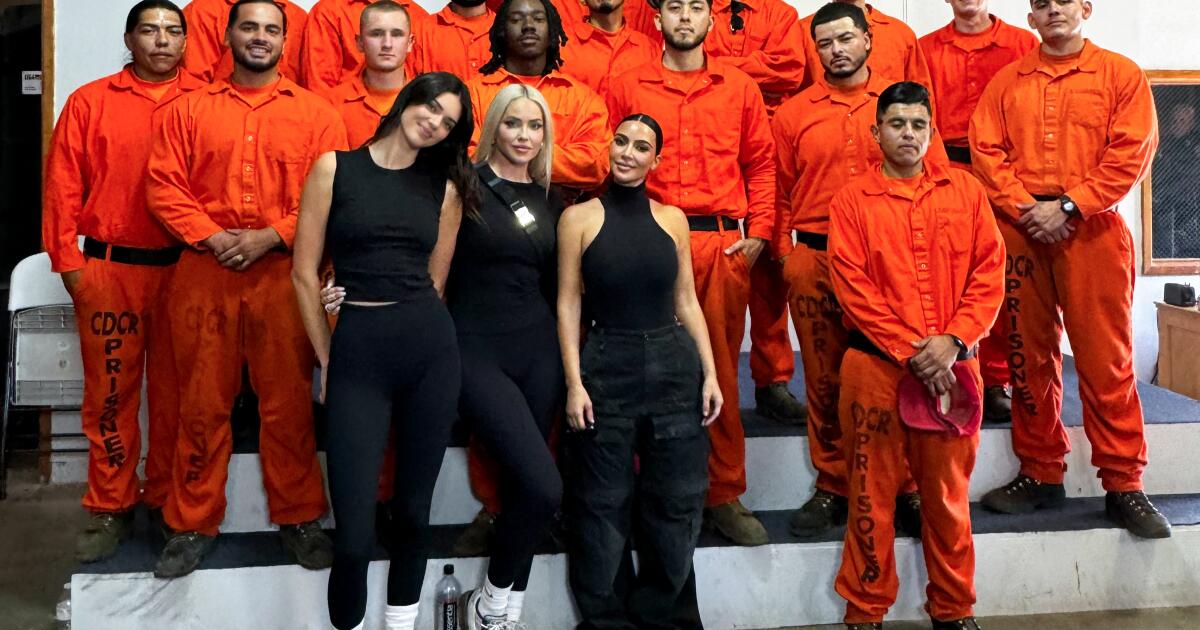
Kim Kardashian, who has become a vocal advocate for criminal justice reform in recent years, last week visited a camp in the mountains of Northern California where incarcerated men serve as firefighters, often deploying to the front lines of the state’s largest blazes.
The California Department of Forestry and Fire Protection posted photos of the visit, saying Kardashian visited Camp No. 33 in Growlersburg, El Dorado County, and met with several crews to “learn more about the program and show her support.” The camp, Cal Fire noted, is jointly run by the California Department of Corrections and Cal Fire. Incarcerated individuals are trained to pursue careers in firefighting after their release, the post said.
Kardashian, who was accompanied by her sister Kendall Jenner, later posted more photos of her visit on her own Instagram account, which, with 361 million followers, attracts far more attention than Cal Fire’s Amador-El Dorado Facebook page. Kardashian wore a black off-the-shoulder turtleneck and black sneakers; the firefighters wore orange hazmat suits with heavy-duty boots.
“These incredible men are incarcerated firefighters saving our state, our homes and our communities from fire,” she wrote, adding that firefighters can expunge their criminal records and “dedicate themselves to fighting fires” when they get out.
Several people rushed to the comments section of Kardashian’s post to exclaim that they spotted family members in the photos.
“That’s my son in the back of the fifth picture,” one woman wrote. “Thank you for supporting these boys.”
Kardashian, who became a global celebrity thanks to her family’s reality TV show and social media, met with Vice President Kamala Harris She visited the White House for a roundtable on criminal justice reform earlier this year. And last week, she announced on her Instagram page that she recently visited the Justice Department in Washington to discuss prisoners “who have taken responsibility for their crimes … and are ready to go home and be with their families.”


